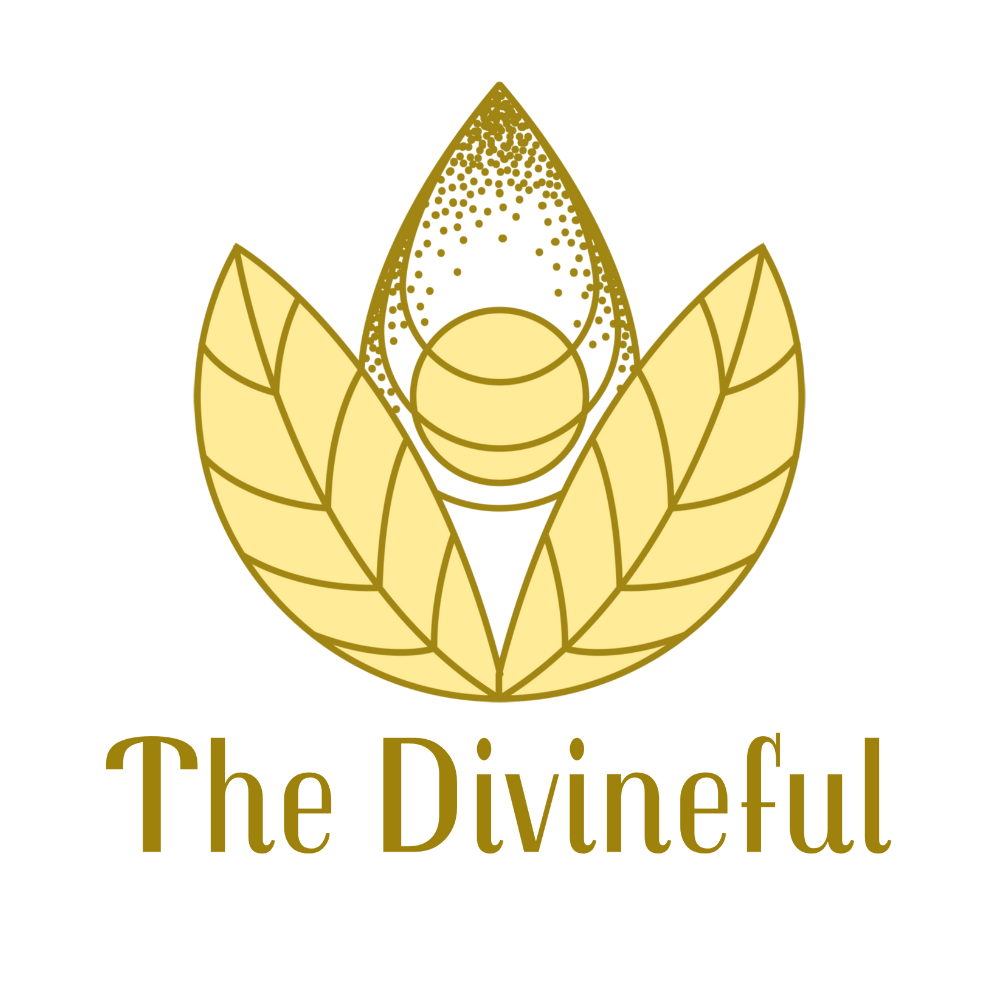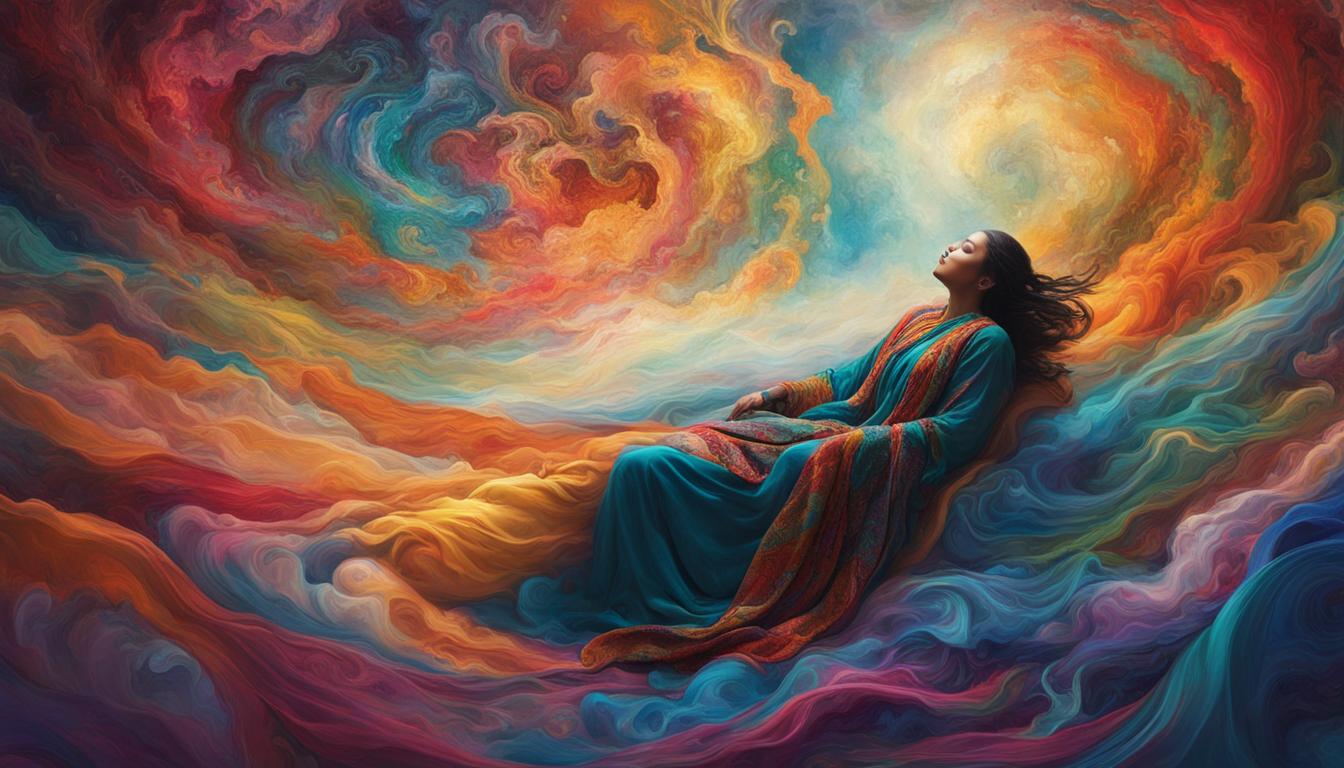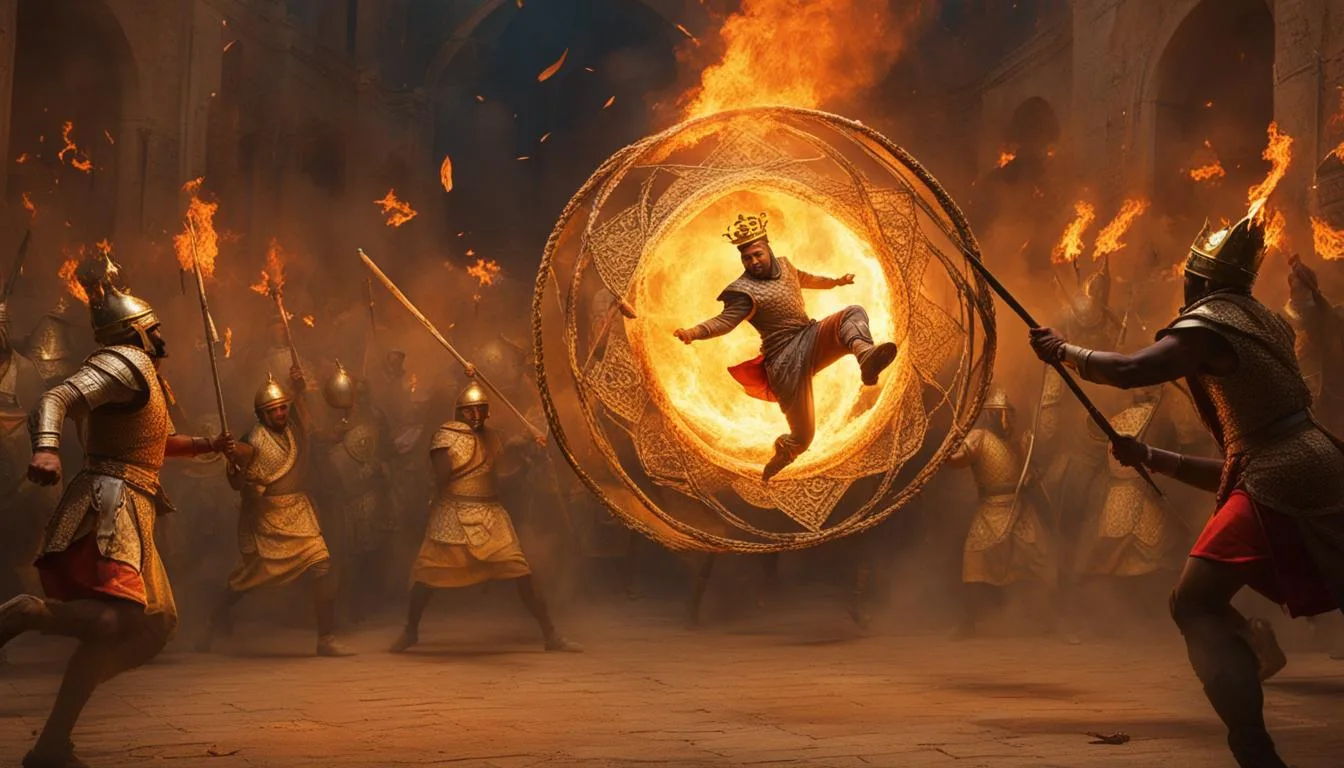Dreaming is a universal human experience that transcends cultural boundaries. While the process of dreaming is consistent, the content of our dreams varies widely. Various cultures have dedicated resources to interpreting the messages hidden within dreams. The ancient Egyptians believed dreams could reveal the future, while Australian aboriginal cultures saw dreams as a means to witness the ongoing creation of the world. The Bible has also influenced dream interpretation, with dreams often symbolizing aspirations or anxieties. Islam considers dreams to be signs from Allah, with different types of dreams carrying different meanings. Despite these cultural differences, the belief that dreams are a form of communication with divine beings is a common thread.
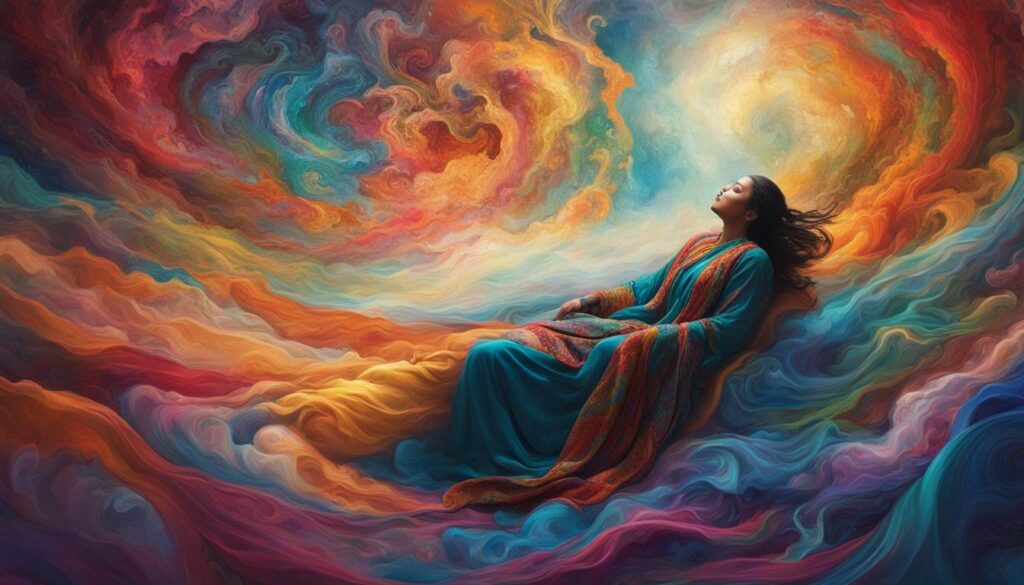
Dream Themes Across Cultures: What People Dream About in Different Parts of the World
Across cultures, certain dream themes and symbols are so prevalent that they are considered part of the collective unconscious. These common dream themes provide fascinating insights into the human psyche and reveal the shared experiences and concerns of people around the globe. While the specific content of dreams may differ depending on cultural backgrounds and individual experiences, there are universal dreams that transcend geographical boundaries.
In various studies and surveys conducted in different countries, researchers have found recurring dreams and common themes that are reported by people worldwide. Some of the most popular dream themes include being chased, falling, teeth falling out, losing control of a vehicle, flying, and not being able to find a toilet. These dreams often evoke strong emotions and can leave a lasting impression on the dreamer.

For example, in Russia, the most searched dream themes on the Yandex search engine include houses, cats, snakes, and water. In the United States, people frequently report dreams about being unprepared for important events, mortality, and embarrassing situations. In Brazil, common dream themes include falling, having sex, being late, being naked in front of others, and losing teeth. In Germany, being paralyzed, falling, and being chased are frequently reported dream themes. These cultural variations in dream themes offer valuable insights into the fears, desires, and anxieties that are prevalent in different societies.
Understanding these common dreams and recurring themes across cultures not only sheds light on the shared human experience but also highlights the universal aspects of our subconscious minds. Whether we are in Russia, the United States, Brazil, or Germany, our dreams often reflect the underlying emotions and concerns that are deeply ingrained in our collective consciousness.
Cultural Beliefs about Dreams: How Different Cultures Interpret the Nature of Dreaming
Across different cultures, there are varying beliefs about the nature of dreams and how they should be interpreted. While some cultures dismiss dreams as mere figments of the imagination, others consider them to hold valuable insights about the future, the spiritual world, or even oneself. Many cultures believe that dreams involve the wandering of the soul during sleep or a continuation of thoughts from waking life.
In terms of dream interpretation systems, there are significant differences based on the nature of dreaming, conventional interpretations, social context, and therapeutic use. Some cultures interpret dreams as direct predictions of the future, either literally or through symbolic references. The notion of dreams serving as omens is a universal tenet of dream lore, with interpretations often offering reassurance to dreamers.
For example, in ancient Egyptian culture, dreams were seen as messages from the divine realm, providing insight into the future or guidance on important matters. In the Islamic tradition, dreams are believed to be signs from Allah, with different types of dreams carrying varying meanings. These cultural beliefs and interpretations contribute to the rich tapestry of dream exploration and understanding across different societies.
Dreams as a Medium of Communication: How Dreams Connect People and the Supernatural
Dreams are a fascinating phenomenon that goes beyond mere imagination and subconscious thoughts. In many cultures, dreams are believed to be a medium of communication, enabling individuals to connect with others and even the supernatural. When we dream, we may potentially access a realm where we can interact with spirits, deities, or deceased loved ones.
In some cultures, dreams are seen as a direct line of communication between the dreamer and the person being dreamed of. Shamans, priests, and mediums may use dreams to communicate with spirits or receive important messages. Ordinary individuals also report having encounters with supernatural beings through their dreams.
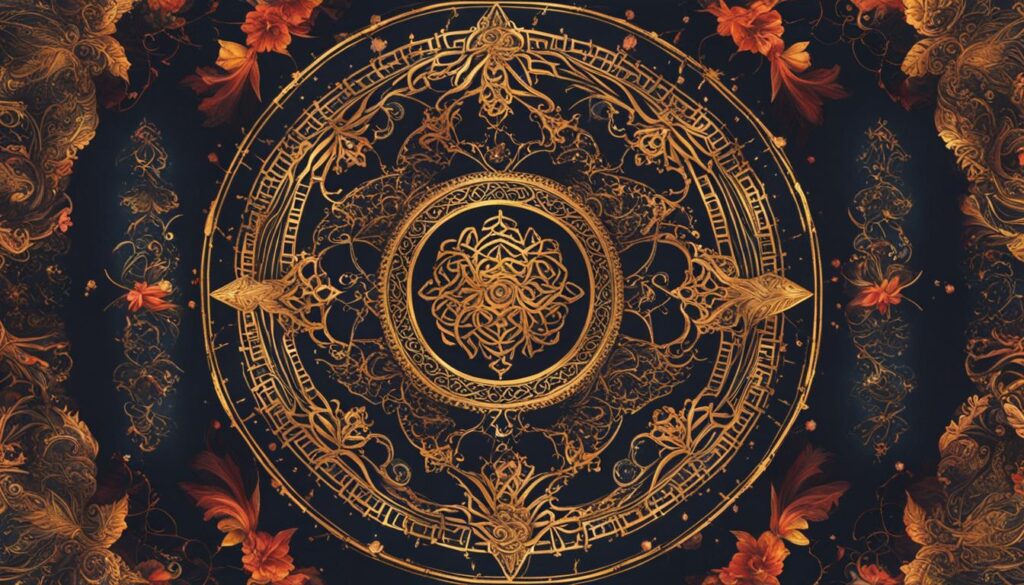
Throughout history, dreams have been regarded as a source of spiritual knowledge. They are believed to provide insights, guidance, and even prophecies. The symbols and imagery within dreams are often regarded as significant and may hold hidden meanings that can offer profound revelations. Interpreting these dream symbols is central to unlocking the messages and guidance that dreams may provide.
By viewing dreams as a channel for communication, many cultures have integrated them into rituals and practices. Dreams hold importance in personal identity, social context, and even political arguments. They can play a role in therapy, healing, and self-discovery. Understanding the role and significance of dreams as a form of communication is an ongoing endeavor that uncovers the depths of the human psyche and its connection to the supernatural.
Dreams and Therapy: The Therapeutic Use of Dreams in Different Cultures
Dreams have long been recognized as a valuable resource for therapy in various cultures. Across different societies and belief systems, dreams are considered a window into the subconscious mind, offering insights into our innermost fears, desires, and conflicts. Cultures around the world have developed different approaches to utilizing dreams in the therapeutic process, employing various rituals, practices, and interpretations to support healing and personal growth.
In some cultures, dreams are used in psychotherapy as a means of exploring and addressing emotional disturbances and anxieties. Through dream analysis, individuals are encouraged to delve into the symbolism and imagery of their dreams, unpacking their underlying psychological significance. By bringing these hidden meanings to light, therapists can guide patients towards a deeper understanding of themselves and their experiences, facilitating healing and personal transformation.
Other cultures may interpret dreams for diagnostic or treatment purposes, using dream symbols as indicators of physical or psychological ailments. Dreams may provide valuable clues that can inform medical diagnoses or guide the selection of appropriate treatments. This approach acknowledges the interconnectedness of the mind and body, recognizing that our dream experiences can reflect and impact our overall health and well-being.
The Power of Dream Sharing and Discussion
One common thread that runs through many cultures is the emphasis on communal support and discussion when it comes to dream interpretation. Sharing dreams within a supportive community or with a trusted therapist can provide a sense of validation and create a safe space for exploration and reflection. The act of verbalizing dreams and engaging in meaningful dialogue can deepen the therapeutic process, offering new perspectives and insights.
In conclusion, dreams have a vital role in therapy across various cultures. Whether used for personal reflection, psychological exploration, or physical healing, dreams offer a rich source of information and meaning. As the field of dream interpretation continues to evolve, it is clear that dreams hold a universal and powerful connection to our inner selves, providing valuable insights that can support personal growth and emotional well-being.
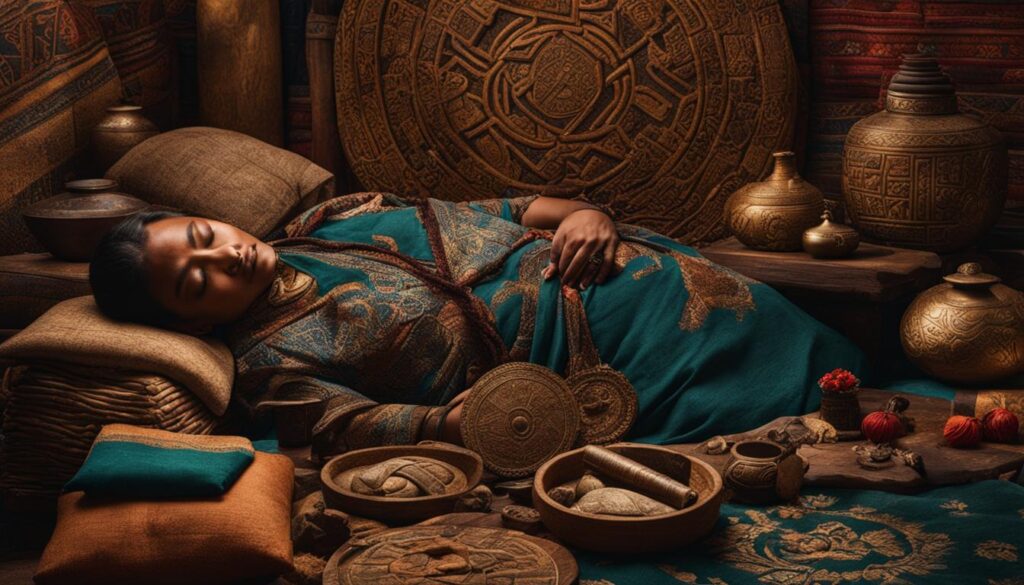
The image above illustrates the use of dream therapy, where individuals explore the symbolic meanings and interpretations of their dreams in the therapeutic process.
The Intriguing World of Dream Interpretation Across Cultures
Dream interpretation is a fascinating field that varies across cultures, reflecting diverse beliefs, folklore, religion, and individual experiences. While some dream themes are universal, each culture has its own unique approach to understanding and decoding the messages hidden within dreams.
Ancient civilizations, such as the Egyptians, regarded dreams as direct messages from divine realms. They believed dreams could foretell the future or offer glimpses into the ongoing creation of the world. Australian aboriginal cultures also saw dreams as a means of witnessing the spiritual world and gaining insights into the mysteries of existence.
The Bible has significantly influenced dream interpretation, with dreams often carrying symbolic meanings related to aspirations or anxieties. Islamic cultures, on the other hand, consider dreams as signs from Allah, classified into different types that carry specific meanings.
Across numerous cultures, dreams are seen as a form of communication, therapy, or spiritual connection. Dream interpretation rituals and practices are used to address anxieties, heal emotional disturbances, and gain insight into one’s inner wishes, fears, and conflicts. As ongoing research progresses, new questions arise, challenging the possibility of a scientific approach to understanding the profound meaning of dreams.
